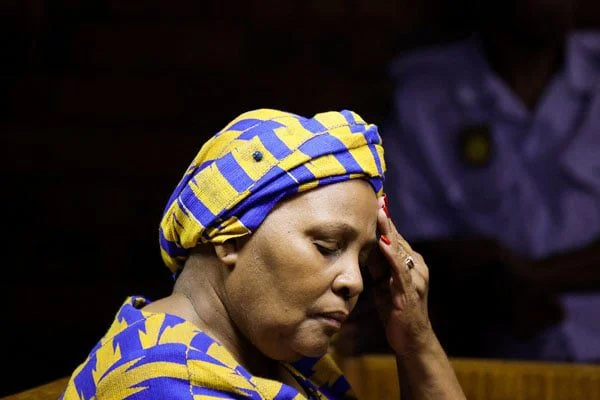The former speaker of South Africa’s parliament, Nosiviwe Mapisa-Nqakula, appeared in court on Tuesday to face charges of corruption and money laundering.
During her hearing at the Magistrate’s Court, it was announced that her case has been transferred to the High Court in Pretoria for trial, indicating that the prosecution believes it has a strong case against her.
The trial is set to begin on October 16. Mapisa-Nqakula is accused of soliciting R4.5 million from a defense contractor during her tenure as the country’s defense minister.
She resigned from her position as speaker of the National Assembly following her indictment in early April. Mapisa-Nqakula has publicly denied all charges against her, maintaining her innocence as the legal proceedings move forward.
The transfer of Nosiviwe Mapisa-Nqakula’s case to the High Court marks a significant step in the legal proceedings, reflecting the seriousness of the allegations against her.
As the trial date approaches, there is considerable public interest in the case, given Mapisa-Nqakula’s prominent role in South African politics.
Her tenure as defense minister has come under scrutiny due to the charges, which allege that she improperly solicited funds from a defense contractor.
The implications of these allegations are significant, as they touch on issues of accountability and transparency within government.
Mapisa-Nqakula’s resignation as speaker of the National Assembly after her indictment highlights the gravity of the situation. It has raised questions about the integrity of public officials and their responsibilities to uphold ethical standards.
As the trial is set to begin in October, both the prosecution and defense will have the opportunity to present their cases. Legal experts suggest that the outcome could have far-reaching implications for political accountability in South Africa.
In the meantime, the public and media will likely keep a close watch on the proceedings, as they seek to understand the full scope of the allegations and their potential impact on the political landscape.
Mapisa-Nqakula’s case is not just about her; it represents broader issues of corruption and governance that are critical to South Africa’s future.





















